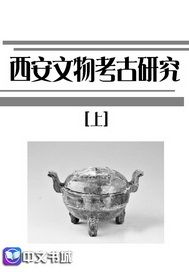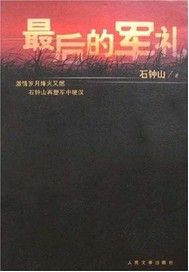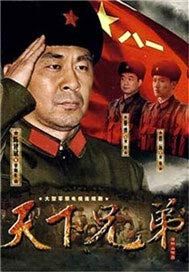當前位置:
科普教育
> 浙江抗戰損失初步研究
> 序1
序1
Preface
Scholars could wish that American students and the public at large were more familiar with Chinese perspectives on the Pacific War.Fulfilling that wish would greatly strengthen cross-cultural understanding,not only between our two countries but among all countries on the Pacific Rim.Professor Yuan's study of the Pacific War leads us in that direction.
The differences between Chinese and American experiences and memories of the Pacific War are huge.Dominant American narratives focus on the war as an American experience,even though the war,with the exception of Pearl Harbor and the Aleutian Islands,did not take place on American soil.Our narratives,furthermore,concentrate only on four years of the war,beginning with the Japanese bombing of Pearl Harbor,where we are the victim,and ending with Hiroshima and Nagasaki,where we are triumphant and soon victorious.The Japanese surrender marks the beginning of the Pax Americana in the Pacific region,which continues to this day.By contrast the Chinese narrative tells a much more complex and devastating story,not only in terms of the human costs of war but the historical ones as well.Chinese narratives begin fully four years before Pearl Harbor-some as early as1931.China celebrates the defeat of Japan,but the feelings of triumph become dissipated,as civil war between the Nationalists and the Communists resumed.
China and the United States were allies in the struggle against Japan,but the human dimensions of war are hard to compare.American casualties in the Pacific War number in the hundreds of thousands-very few civilians.Chinese casualties,both deaths and injuries,may be more than ten million,and most of them are civilian.American territory was left largely untouched,but Manchuria,most of Northern China,and much of the East and South coasts were occupied for years by Japanese troops.The Pacific War pulled the American economy out of the depression.By contrast vast portions of the Chinese farmland were taken out of production,millions of Chinese civilians were forced to flee their homes,industry was shattered,and the quest for security and political stability,for“national salvation”,remained unfulfilled.
Professor Yuan gives us a carefully researched account of the impact of the Pacific War on the particular province of Zhe-jiang.From his research we learn that 69out of76counties in Zhe-jiang came under Japanese control for much of the occupation.Yuan shows how Zhejiang's agricultural and industrial base deteriorated in the course of the war,and he explores the war's devastation impact on education and public health throughout the province.The human casualties in Zhejiang alone stagger the imagination.Deaths and injuries were over 340,000,while civilian deaths from starvation and attrition caused by the war were over one million.
It is true that time can heal the wounds of war.But the passing of time also uncovers new stories and recasts some of the old ones shaped by political and diplomatic priorities that may have little to do with the experience and memories of the common people.Yuan's last chapter may be seen by an American reader as a celebration of the growing openness in China today,as he describes how civilian groups are telling their own stories and even using the legal process to bring claims for compensation to the Japanese government.
Because the impact of the Pacific War on the countries of the Pacific Rim is so large,research and writing on the war will continue for decades to come-in China,the United States,Japan,and other Asian countries as well.Our common purpose is to search for the truth.But for many of us it also means reconciliation,beginning with a willingness to listen to the“other side”.To American ears the Chinese stories are so hard to imagine that they sound as if they are coming from the“other side”,even as China was our friend and ally in the war.Our quest for mutual understanding and reconciliation must extend as well to the“other side”-eventually to Japan.In no way does this quest soften the obscenities of war or Japanese responsibilities.But it does lead us to recognize that however brutal the enemy can be,brutality and inhumanity are found on all sides.However much we remember the enemy as misled,inhumane or brutal,we must also remember that he too is a human being and has feelings and faces frustrations that we all can recognize and even identify with.Questioning the conventional myths of war and moving beyond both victimization and triumphalism are steps in preventing wars in the future.
Philip West
Mansfield Professor of Modern Asian Affairs
University of Montana
Missoula,Montana
Scholars could wish that American students and the public at large were more familiar with Chinese perspectives on the Pacific War.Fulfilling that wish would greatly strengthen cross-cultural understanding,not only between our two countries but among all countries on the Pacific Rim.Professor Yuan's study of the Pacific War leads us in that direction.
The differences between Chinese and American experiences and memories of the Pacific War are huge.Dominant American narratives focus on the war as an American experience,even though the war,with the exception of Pearl Harbor and the Aleutian Islands,did not take place on American soil.Our narratives,furthermore,concentrate only on four years of the war,beginning with the Japanese bombing of Pearl Harbor,where we are the victim,and ending with Hiroshima and Nagasaki,where we are triumphant and soon victorious.The Japanese surrender marks the beginning of the Pax Americana in the Pacific region,which continues to this day.By contrast the Chinese narrative tells a much more complex and devastating story,not only in terms of the human costs of war but the historical ones as well.Chinese narratives begin fully four years before Pearl Harbor-some as early as1931.China celebrates the defeat of Japan,but the feelings of triumph become dissipated,as civil war between the Nationalists and the Communists resumed.
China and the United States were allies in the struggle against Japan,but the human dimensions of war are hard to compare.American casualties in the Pacific War number in the hundreds of thousands-very few civilians.Chinese casualties,both deaths and injuries,may be more than ten million,and most of them are civilian.American territory was left largely untouched,but Manchuria,most of Northern China,and much of the East and South coasts were occupied for years by Japanese troops.The Pacific War pulled the American economy out of the depression.By contrast vast portions of the Chinese farmland were taken out of production,millions of Chinese civilians were forced to flee their homes,industry was shattered,and the quest for security and political stability,for“national salvation”,remained unfulfilled.
Professor Yuan gives us a carefully researched account of the impact of the Pacific War on the particular province of Zhe-jiang.From his research we learn that 69out of76counties in Zhe-jiang came under Japanese control for much of the occupation.Yuan shows how Zhejiang's agricultural and industrial base deteriorated in the course of the war,and he explores the war's devastation impact on education and public health throughout the province.The human casualties in Zhejiang alone stagger the imagination.Deaths and injuries were over 340,000,while civilian deaths from starvation and attrition caused by the war were over one million.
It is true that time can heal the wounds of war.But the passing of time also uncovers new stories and recasts some of the old ones shaped by political and diplomatic priorities that may have little to do with the experience and memories of the common people.Yuan's last chapter may be seen by an American reader as a celebration of the growing openness in China today,as he describes how civilian groups are telling their own stories and even using the legal process to bring claims for compensation to the Japanese government.
Because the impact of the Pacific War on the countries of the Pacific Rim is so large,research and writing on the war will continue for decades to come-in China,the United States,Japan,and other Asian countries as well.Our common purpose is to search for the truth.But for many of us it also means reconciliation,beginning with a willingness to listen to the“other side”.To American ears the Chinese stories are so hard to imagine that they sound as if they are coming from the“other side”,even as China was our friend and ally in the war.Our quest for mutual understanding and reconciliation must extend as well to the“other side”-eventually to Japan.In no way does this quest soften the obscenities of war or Japanese responsibilities.But it does lead us to recognize that however brutal the enemy can be,brutality and inhumanity are found on all sides.However much we remember the enemy as misled,inhumane or brutal,we must also remember that he too is a human being and has feelings and faces frustrations that we all can recognize and even identify with.Questioning the conventional myths of war and moving beyond both victimization and triumphalism are steps in preventing wars in the future.
Philip West
Mansfield Professor of Modern Asian Affairs
University of Montana
Missoula,Montana
-
更多
編輯推薦
- 1中國股民、基民常備手冊
- 2拿起來就放不下的60...
- 3青少年不可不知的10...
- 4章澤
- 5周秦漢唐文明簡本
- 6從日記到作文
- 7西安古鎮
- 8共產國際和中國革命的關係
- 9曆史上最具影響力的倫...
- 10西安文物考古研究(下)
看過本書的人還看過
-
科普教育 【已完結】
本書收錄對劉誌丹同誌的研究文章,包括《論劉誌丹對中國革命的重大貢獻》、《劉誌丹在創建西北革命根據地的地位和作用》、《劉誌丹對西北革命根據地黨的建設的貢獻》、《共產黨人的楷模》、《劉誌丹在黃埔軍校...



















